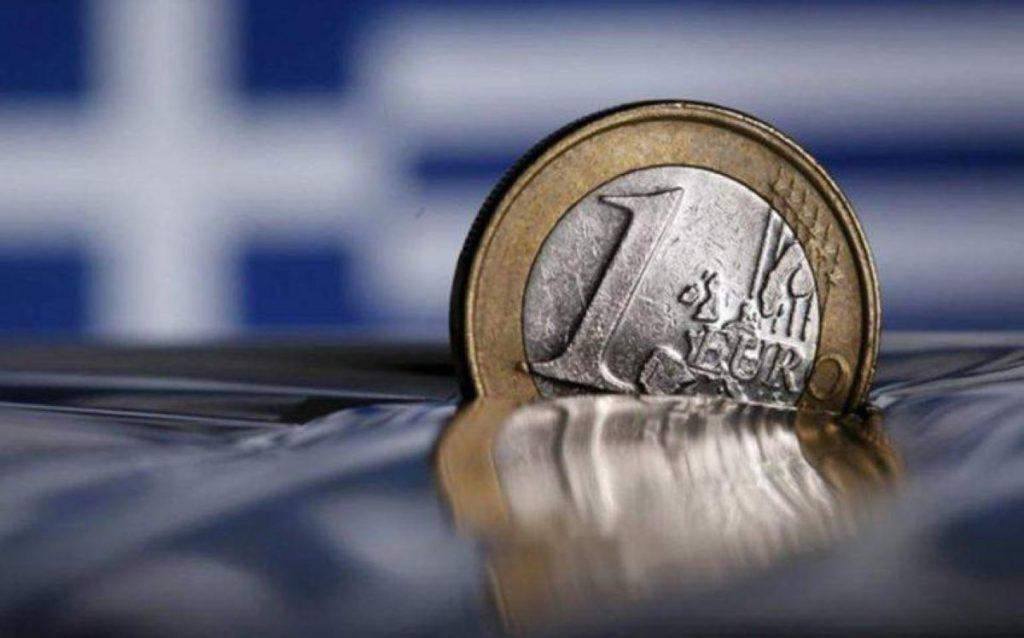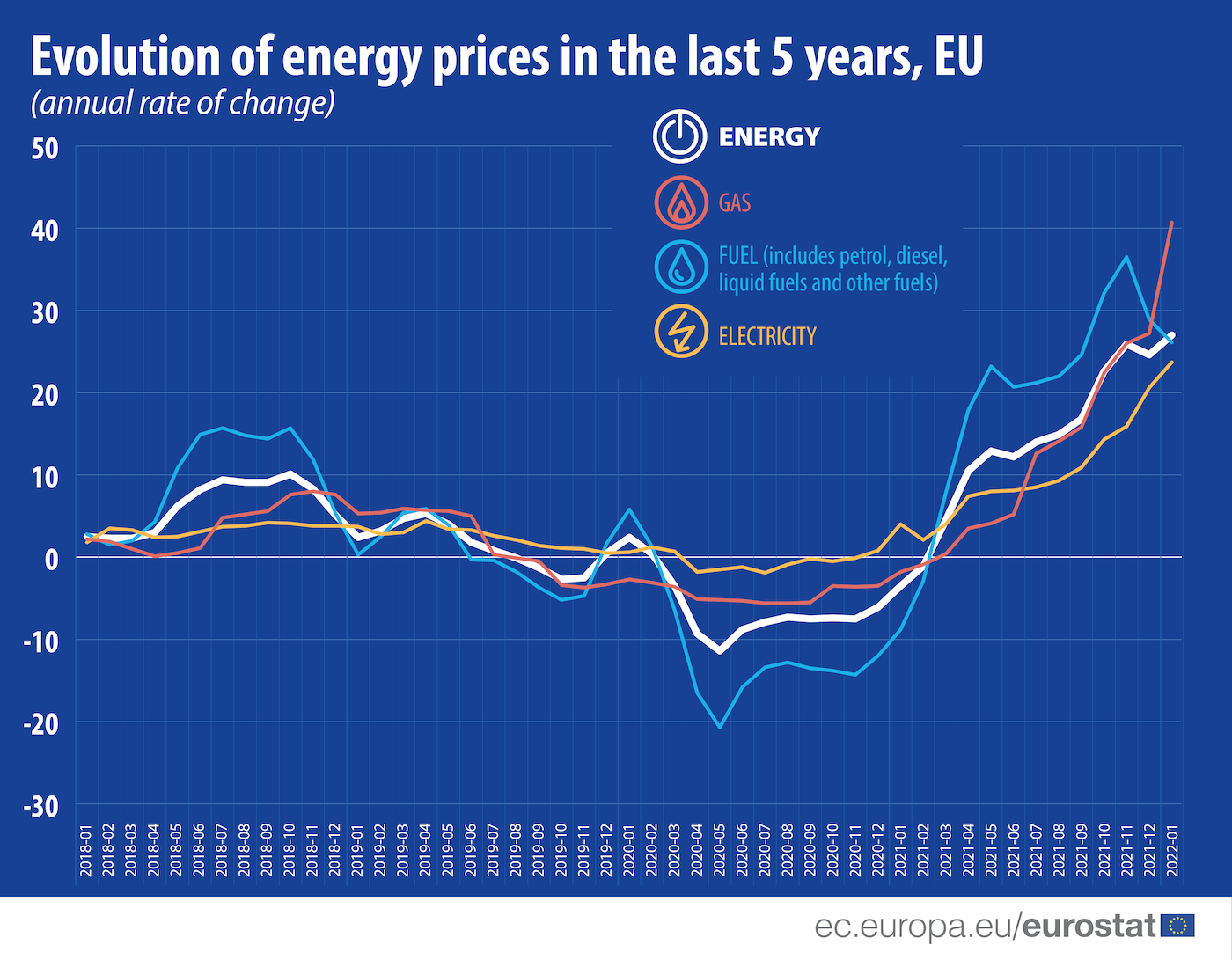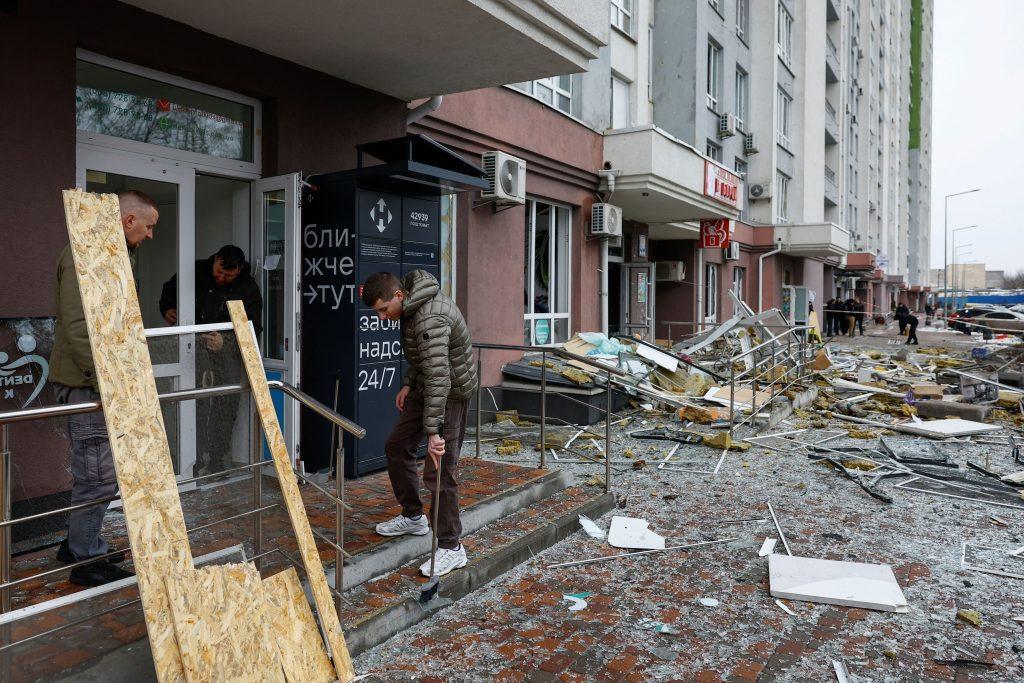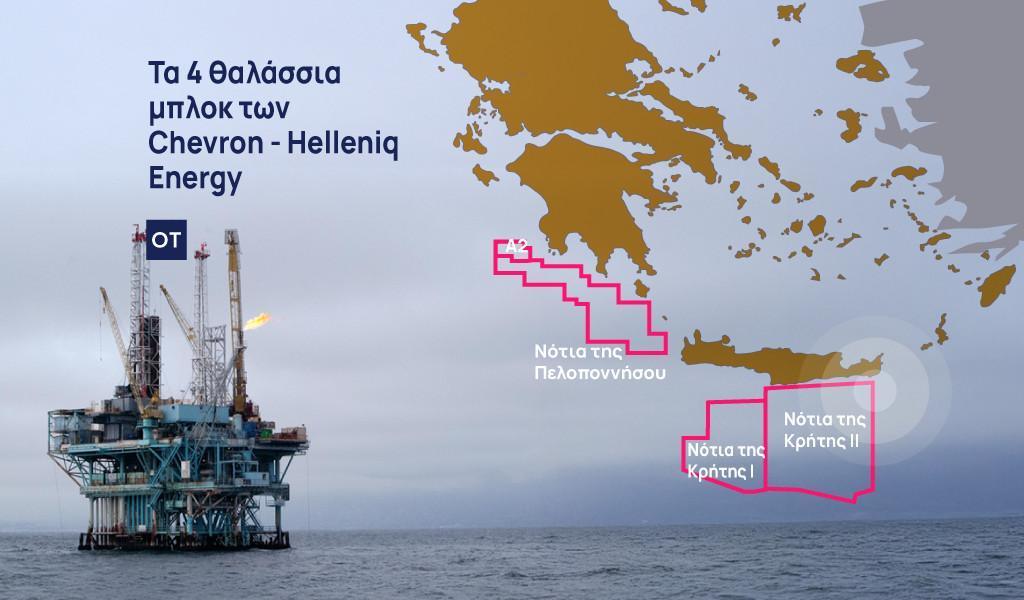Energy annual inflation in the EU hit 27% in January 2022, continuing the upward trend. This information comes from data published by Eurostat recently.
Following its lowest rate in five years in May 2020 (-11%), energy inflation started to increase but continued to show negative rates up until February 2021, varying between -9% and -1%. From March 2021, energy inflation was positive and increased almost continuously, reaching 26% in November 2021 and 27% in January 2022.
The inflation rate for energy is the highest since the Harmonised Index of Consumer Prices (HICP) was first published in 1997. In October 2021, it surpassed the highest point recorded so far: 17% in July 2008.
Looking at the sub-components of energy, gas reached its highest point in January 2022 at almost 41%, a 13.5 percentage point (pp) increase compared with the previous month, significantly above other energy sources – fuel (including petrol, diesel, liquid fuels and other fuels) at +26% (-2.8 pp) and electricity at +24% (+3.1 pp).
During the COVID-19 pandemic, inflation rates for fuel were more volatile than for electricity and gas. Inflation rates for gas and electricity hit negative values between April and December 2020, but were more stable, averaging -5% for gas and -1% for electricity. Fuel however hit a low point in May 2020 (-21%) and then peaked at +37% in November 2021.

Among the EU Member States, Belgium (67%) and the Netherlands (58%) registered the highest energy inflation rates in January 2022, followed by Lithuania (43%), Estonia (41%) and Greece (40%). At the other end, the energy inflation rate was 0% in Malta, with Croatia and Portugal following, both with 12%.










































